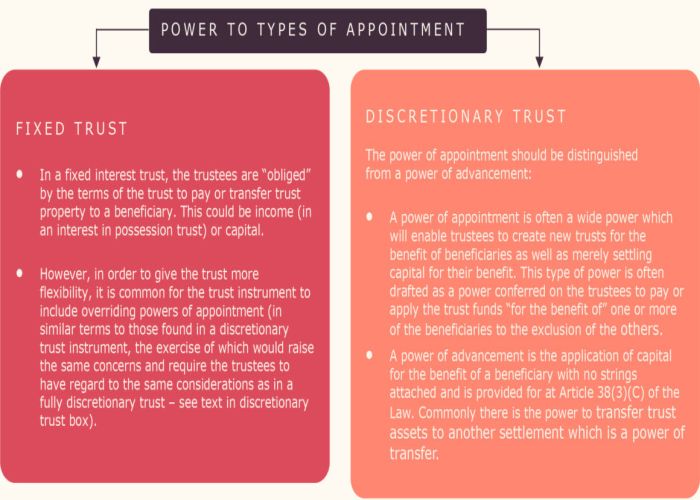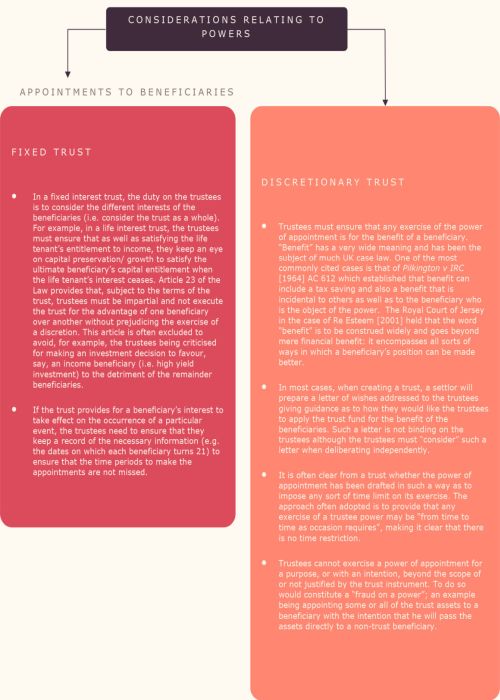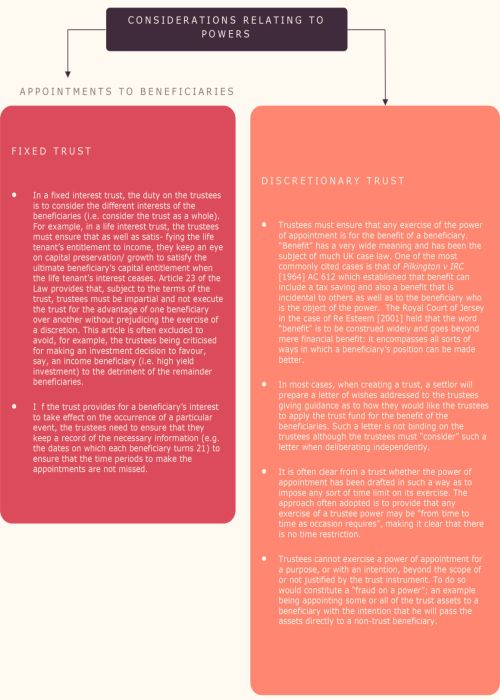- within Immigration and Family and Matrimonial topic(s)
The purpose of private trusts is to benefit beneficiaries and to this extent beneficiaries will often benefit from the trustees appointing trust assets to them. This is provided for at Article 39 of The Trusts (Jersey) Law 1984 (the Law) which states that the trustees have the "power to appoint or assign all or any part of the trust property or any interest in the trust property to, or to trustees for the benefit of, any person, whether or not such person was a beneficiary of the trust immediately prior to such appointment or assignment".
Trust instruments are bespoke, prepared according to the particular settlor's wishes, and as such the terms of a trust will provide who can benefit, how, when and to what extent.
The below is a summary of the common types of appointment, considerations to be taken in to account before making an appointment and some common issues faced by trustees in relation to appointments under both fixed interest trusts (i.e. where the settlor specifically identifies which beneficiaries are to benefit and expressly stipulates how and when they are to enjoy the trust property) and discretionary trusts (i.e. where trustees have "discretion" as to how they exercise their powers, who to benefit, when and to what extent.
For more specific advice on trusts in Jersey, we invite you to contact David Dorgan, Head of Private Client & Trusts, Jersey.
The content of this article is intended to provide a general guide to the subject matter. Specialist advice should be sought about your specific circumstances.
[View Source]




